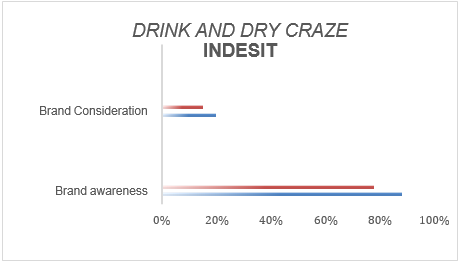
More people are consuming their news through swiping their iPhone than flicking a newspaper. We know. If that's what you believe or hope this essay will cover, please move on.
This essay covers how the business model of a PR agency will change come 2020, triggering a serious battle for survival.
By 2020, the lines between PR, marketing and advertising will have been etched off. A PR agency will be inept if they cannot blend roles – be it to organise a corporate roundtable, find advertising space or come up with branding. In addition, the equilibrium between the PR consultant and journalist will be defied because newsrooms will be condensed, the influence of bloggers and content creators will grow, and clients will care more about monitoring ROI’s through business development and sales rather than AVEs. Journalism is already stylizing itself more like blogs, while blogs becoming more defined to offer particular information like journalism.
Evolution is good for most of us – the world is now filled with platforms in every nook and cranny. One day, in 2020, blogs and articles will be bunched together as ‘the media’, changing the relevance of a pitch for every PR professional - in good ways for most. What’s more, PR firms are being thrown into the pool to fight amongst communications and digital marketing agencies too.
For the first time ever, an individual or business will harness their own platform to speak for themselves. Half of the industry (almost) is dominated by millennials. Every person writing this essay will have been brought up in the so-called ‘digital age’, where ideas are expressed in 140 characters or less. Soon enough, you can almost wave goodbye to printed media - all press releases will be video releases. Physical copies of a newspaper will be obsolete in the upcoming decades - this global phenomenon will perhaps take beyond 2020 to happen (let’s not forget, it’s only four years away); but it will happen.
For instance, in an interesting case study devised by General Electric (GE) - a huge conservative and confidential client, the company led a PR campaign and even went as far as creating their own social network to share science fiction stories around the history and tradition of GE, called Wattpad.1
For the business model of an agency, this sparks the evolution from overheads imposed on the 100-strong team based on the third floor of a glass building near Soho against the freelance consultant situated in Essex on his MacBook Pro whilst subscribed to a mediocre media distribution software. This transformation is not a trading secret, it’s already begun – so what’s in store for 2020? It boils down to the science behind ‘content creation’: some companies are no longer in the hunt for established PR agencies; they want a person that can not only write well, but experts that can write well for them.
Let me give you an example. Karcher – the well-known jet wash cleaning company recently signed contracts to outpour its brand in East London. Who did the enthused BD or marketing manager at the company get to handle the PR around this? Once upon a time, a well branded and established PR agency in the heart of London that has the resources required; but, with access to technology and information reachable by both consultants in the Soho office and in the Essex living room, the locally located latter who has experience in consumer technology was chosen as the more dedicated (and cheaper) fit.
To stay afloat, PR agencies will need to integrate their freelance experts as 'part of the team.' This means that agencies will need to adapt to become more flexible, scrap the constraints of the front-faced 9-5pm working office and no longer expect freelancers to pick up slack as and when required, but really place them on the frontline. It's because clients will demand not just good pitchers, but expert content generators and, dare I say it, 'storytellers', who deliver results. I understand this exposes a number of challenges based on continuity, payroll, competition, conflict of interest, but you've heard it before - if it's what the client wants…
Therefore, agencies that haven’t evolved to offer the ‘complete solution’ by integrating their idea of PR around content creation will be marginalised. Forget agencies specialising in PR, digital marketing, social media etc., the future will be specialising in niche topics relevant to the client, but with all marketing disciplines under one roof.
As a snowball effect of the freelance model based on content marketing (or the numerous buzzwords that will be used in its place), PR noise will become much more about creating awareness within a project campaign as opposed to retained media relationships. Take for example, Coke Zero's recent campaign on using an app to fill coke on your smart phone live, or another campaign called The 'Drink and Dry' craze. Shine PR, the strong team located within a glass building near Soho arranged a disco event within a launderette (yes, you read it correctly) for their client Indesit.

As the above graph displays, hindsight research showed that ‘brand awareness’ of the campaign increased to 88% from 78% and brand consideration (consumers who would consider buying Indesit products before they went into stores) rose from 15% to 20%.
This is what basic PR of the future will look like in 2020; almost all campaigns will be short term, led by a few consultants or freelancers to create eccentric campaigns. And when 2020 hits, directors of yesterday’s firms will wake up on a gloomy Monday morning and smell the coffee: their last client built on a childhood relationship with an FD will leave, and the way of doing things will be all but forgotten. So you ask me what 2020 will hold for PR? Most certainly the end of PR as we know it.
1 Source: [http://creatingthefutureofpr.com/5-lessons-on-high-impact-storytelling-f...
